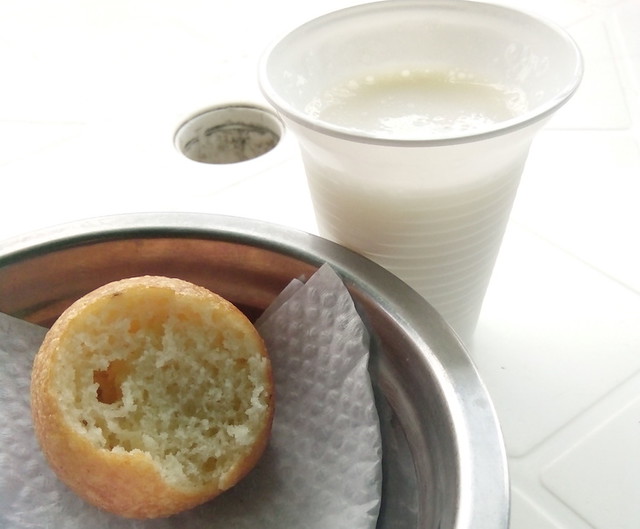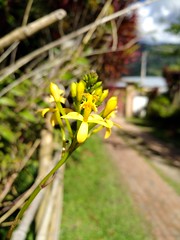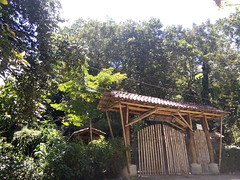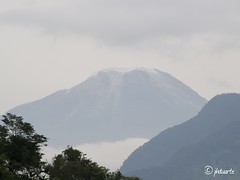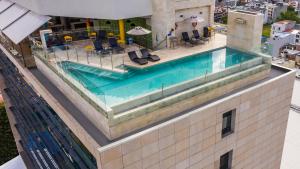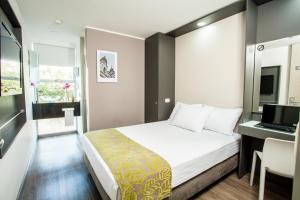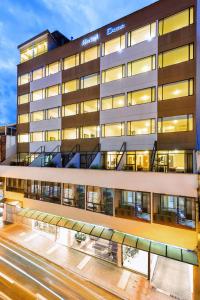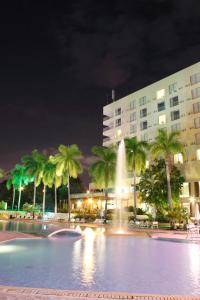Ibagué
Ibagué (Spanish: [iβaˈɣe]) (referred to as San Bonifacio de Ibagué del Valle de las Lanzas during the Spanish period) is the capital of Tolima, one of the 32 departments that make up the Republic of Colombia. The city is located in the center of the country, on the central mountain range of the Colombian Andes, near Nevado del Tolima. It is one of the most populous cities in the country, with a population of 492,554 (according to the 2018 census), making it the eleventh most populous in Colombia, and with a population of 529,625 in the municipality. It was founded on October 14, 1550, by the Spanish captain Andrés López de Galarza. The city of Ibagué is divided into 13 communes and the rural area has 17 corregimientos. As the capital of the department of Tolima the city hosts the Government of Tolima, the Departmental Assembly, and the Attorney General's Office. It is the main epicenter of political, economic, administrative, business, art, culture, and tourism activities in the area.
Ibagué maintains one of the major urban economies of Colombia and could grow in prominence within South America with its development potential and competitive national and international business centers, industry, and infrastructure. It is one of three cities in the country chosen by the World Trade Center Association (WTCA) to build headquarters along with Cali, adding to the one existing in Bogotá. The economy of Ibagué is based primarily on the industrial, tourism, and agricultural sectors, with its textile industry being the third largest in Colombia. According to "Doing Business" from the World Bank in Washington DC, Ibagué tops the ranking of the cities with greater ease of doing business and investment in the country after Manizales. The city is also part of the Colombian coffee growing axis.
The city is known as "The Musical Capital of Colombia and America", thanks to the Conservatory of Tolima (one of the most prestigious and important in Colombia), folklore festivities, and its many monuments referring to music. The city's main educational institutions are the University of Tolima, the University of Ibagué, the Universidad Nacional Abierta y a Distancia (UNAD) and the Conservatory of Tolima.
History
Ibagué was founded by Andrés López de Galarza on October 14 of 1550, as "Villa de San Bonifacio de Ibagué del Valle de las Lanzas" ("Town of Saint Boniface of Ibagué of the Valley of the Spears") in a nearby location where now lies the urban area of the neighboring municipality of Cajamarca about to the west of Ibagué's current whereabouts. The indigenous Pijaos commanded by cacique Ibagué were not fond of Spaniards colonizing the area so the city was re-founded in its current location on February 7, 1551.
From April to December 1854, Ibagué was briefly the capital of the New Granada following a coup d'etat promoted by general José María Melo. In 1908, when the department of Tolima was created, Ibagué was designated as its capital. The University of Tolima was founded in 1945, and was raised to state university status in 1954. The city is also the home of the Roman Catholic Archdiocese of Ibagué.
Geography
Ibagué is located in the Colombian Andean region, in the center of the department of Tolima, surrounded by mountains on all sides with the exception of a plateau which extends to the east.
Volcanism
Ibagué lies within the Andean Volcanic Belt. It has two active volcanoes in its immediate vicinity: the Nevado del Tolima, NW of the city, and the Cerro Machín, west of the city center but still within the Municipality of Ibagué. The city is one access point to Los Nevados National Park, the other being Manizales.
Cerro Machín has been dormant for the last 800 years, but seismological activity has been registered recently causing several earthquakes. The volcano is classified as "III – Changes in behavior of volcanic activity" by Ingeominas, the Colombian Institute for Geology and Mining. A map of menaced areas has been published indicating that in the event of an eruption the city of Ibagué would not be affected despite its proximity to the volcano.
Demographics
The total population of the municipality of Ibagué (including urban and rural areas), according to the 2018 census, was 529,635 inhabitants, of which 492,554 resided in the urban area.
Neighborhoods
- Licapeña
Notable people
- Andres Marin, competitive ice climber
- Darío Ortiz Robledo, artist
- Óscar Escandón, boxer
- Jairo Alberto Bocanegra Pena, singer
- Patricia Caicedo, soprano
- Estefanía Gómez, actress
- James Cañón, novelist
- James Rodríguez, soccer player
Twin towns – sister cities
Ibagué is twinned with:
- Chengdu, China
- Vitoria-Gasteiz, Spain
External links
Hotels Ibagué
Looking for places related to Ibagué?
Those are other destinations to find places related to Ibagué:
